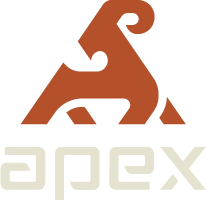7 Tips to Choose the Right Insurance Advisor for Your Construction Business
Key Takeaways
- The right construction insurance advisor brings specialized expertise, proactivity, and risk management insight to keep your business safe and compliant.
- Evaluating industry experience, communication, claims support, and technology use will help you separate the best from the rest.
- Actionable steps like checking credentials, asking for references, and probing for commitment to safety programs are vital for contractors.
Ever found yourself staring at a stack of insurance paperwork, wondering if you’re really covered for everything the construction world can throw your way? If so, you’re in good company. Running a construction firm isn’t just about building structures—it’s navigating a maze of risks: sky-high injury rates, contract disputes, and a workforce that’s always on the move.
Here’s a number that should make any contractor sit up and take notice: In 2023, 54% of U.S. construction companies expanded their insurance coverage in response to a tidal wave of new risks—from natural disasters to digital security threats (CoinLaw). Clearly, just "checking the box" on insurance isn’t enough.
Let’s dig into seven actionable strategies for picking an insurance advisor who knows the construction industry inside out—and can help you build (and protect) a more resilient business.
Understanding Your Business’s Risks and Insurance Needs
Every construction company is unique. Whether you’re a general contractor working on commercial towers, a residential builder, or deep in the trenches of infrastructure, each niche comes with its own risk profile.
A top-tier construction insurance advisor won’t treat your needs like just another form to fill. Instead, they’ll take time to understand:
- Your project types and typical contract values
- Special risks (think: cranes, scaffolding, heavy equipment, or sub-subcontractor layers)
- Regulatory and contractual compliance needs
And the stakes are high. The construction industry accounts for 21% of all deaths among U.S. workers (Procore), with fatality rates consistently higher than most other sectors (Wikipedia). You've got enough to worry about without wondering if your insurance will really pay out when you need it.
People Also Ask:
Why do construction businesses need specialized insurance advisors?
The sheer complexity and risk of building projects mean generalist advisors might overlook critical exposures, putting your entire operation at risk.
Evaluating Advisor Credentials and Relevant Experience
What credentials should you look for in a construction insurance advisor?
A reputable advisor holds state insurance licenses and, ideally, industry designations such as CIC (Certified Insurance Counselor) or CRIS (Construction Risk and Insurance Specialist). Run a license check—it’s just good due diligence.
But fancy letters alone aren’t enough. The real secret sauce is industry experience. Construction faces an ongoing labor shortage of over 650,000 workers, with 89% of firms calling it their top challenge (Sanford & Tatum Insurance). Your advisor should understand how workforce pressures impact liability, coverage needs, and claims.
Don’t forget reputation. Ask for client references—ideally, from contractors similar to your business. And always scan independent reviews. For a framework on vetting professional service providers, check the guide in ourAbout section.
People Also Ask:
How do I check if my construction insurance advisor is reputable?
Ask for references, check online reviews, and verify active industry credentials.
Assessing Risk Management Approach and Safety Advocacy
A great insurance advisor does more than issue policies, they become your risk management partner. So, how do you spot a proactive advisor?
Proactive Risk Management: What sets the best apart?
Look for someone who encourages:
- Regular risk assessments and tailor solutions to your specific projects.
- Continual training and real-time safety recommendations—not just end-of-year policy renewals.
Daily safety meetings matter too. Companies that hold daily safety meetings have a recordable incident rate 4x lower than those meeting monthly (GoCanvas). And, safety programs don’t just reduce injuries—they can cut illness and injury-related costs by 20-40% (GoCanvas).
Your advisor should support developing or enhancing these programs, ensuring compliance and reducing claims down the line.
Signs of a Quality Risk Management Advisor
- Runs project-specific risk evaluations
- Recommends targeted safety training
- Tracks safety metrics and trends
- Offers regular safety program tune-ups
Contract Review and Claims Management Expertise
Why is contract risk management so critical in construction?
Here's a gut check: Contract disputes in construction averaged a staggering $42.8 million in value in 2022, with contract errors leading the charge (STACK Construction Technologies).
A savvy advisor will:
- Review your contracts for risk-shifting clauses (those hidden pitfalls can be costly!).
- Flag potential coverage gaps created by contract language—even before a shovel hits the ground.
- Support speedy, well-documented claims—so you’re not left in the lurch when it matters most.
Ability to Offer Customized, Comprehensive Coverage Solutions
One-size-fits-all insurance rarely fits anyone in construction. Your ideal contractor insurance guidance should cover a tailored menu, such as:
- General liability
- Builders risk
- Workers’ compensation
- Surety bonds
- Professional liability/E&O
- Auto, tools, and equipment floater
Coverage Types and Typical Construction Exposures
| Coverage Type | Typical Exposures Covered |
|---|---|
| General Liability | Bodily injury, third-party property damage |
| Builders Risk | Damage to buildings under construction |
| Workers’ Comp | Employee injuries, lost wages |
| Surety Bonds | Contract performance guarantees |
| Professional Liability | Design errors, negligent advice |
A smart advisor will proactively review your coverage, especially as you grow or as new regulations emerge. Remember, more than half of firms expanded coverage in 2023 (CoinLaw). If your advisor isn’t initiating those policy health checks, it’s time for a rethink.
Financial Implications: Cost Management and Value Creation
Insurance costs in construction aren’t just high—they can be punishingly so. Workers’ comp averages $7,542 per worker per year (GoCanvas), and defending a single professional liability claim costs on average $120,000 (CoinLaw).
Your advisor should help:
- Spot and close costly coverage gaps (before claims strike)
- Bundle policies for better rates
- Review deductibles and exclusions annually
- Leverage industry group programs, where available
People Also Ask:
How can a construction insurance advisor help lower my insurance costs?
By aggressive risk management, annual policy reviews, and smart bundling strategies tailored to your business.
Communication, Technology, and Service Commitment
Let’s face it, construction moves fast. You need an advisor who’s one step ahead.
- 24/7 support: For emergencies on weekends, holidays, or at midnight
- Clear communication: Proactive updates, fast response times
- Digital tools: Advisors who use software to track claims, risk trends, and safety analytics bring you a real-time, big-picture view
Advisor Tech Tools and Your Benefit
| Tool/Software | Your Benefit |
|---|---|
| Claims Tracking Portals | Quick status updates |
| Risk Trend Analytics | Spot dangers early, adjust policies fast |
| Safety Program Platforms | Easier compliance, fewer claims |
People Also Ask:
What digital tools should my insurance advisor be using?
Modern advisors leverage claim tracking portals, risk analytics platforms, and apps for faster, more transparent service.
Making Your Choice: Comparing Advisors and Next Steps
Ready to build your shortlist? Here’s a quick checklist for interviewing advisor candidates:
- Are you licensed and experienced in construction risk?
- How often do you conduct risk reviews for your clients?
- Can you help with contract risk management and claims?
- What safety program support do you provide?
- What tech tools do you use to serve contractors better?
- Who can I speak with for a reference?
- How will you adapt our coverage as my business grows?
Treat advisor selection like hiring a critical team leader—it’s all about long-term partnership and ongoing support.
Wrapping Up & Next Steps
The right insurance advisor isn’t just a vendor—they’re a cornerstone of your business resilience. Armed with these strategies, you’re now ready to find a partner who’ll help you balance risk, control costs, and future-proof your construction business.
If you want expert advice tailored to your operation,reach out today for a personalized consultation. Building and protecting your legacy starts here.
FAQ
- What’s the biggest risk if I use a generalist insurance broker for my construction firm?
A generalist broker may not understand the nuances of construction contracts, regulatory issues, or the unique exposures you face. This can lead to costly coverage gaps, compliance headaches, and denied claims when you need support the most. - How often should I review my insurance coverage with my advisor?
An annual review is the minimum. However, any time your business changes—new project types, increased payroll, expanded territory, or regulation updates—you should check in more frequently. Great advisors reach out proactively. - Can an insurance advisor really help us reduce jobsite injuries?
Yes! Advisors with strong risk management backgrounds can help design, implement, and monitor effective safety programs. These lead to lower incident rates and, ultimately, reduced insurance premiums and claims. - What’s the first question I should ask a potential insurance advisor?
Ask: “What construction-specific risks have you helped clients manage in the last year?” This will tell you immediately if they work regularly in your industry and understand the field. - How quickly should an advisor respond to urgent issues, like a jobsite accident claim?
Response times matter—a good advisor should be reachable the same day (within a few hours




